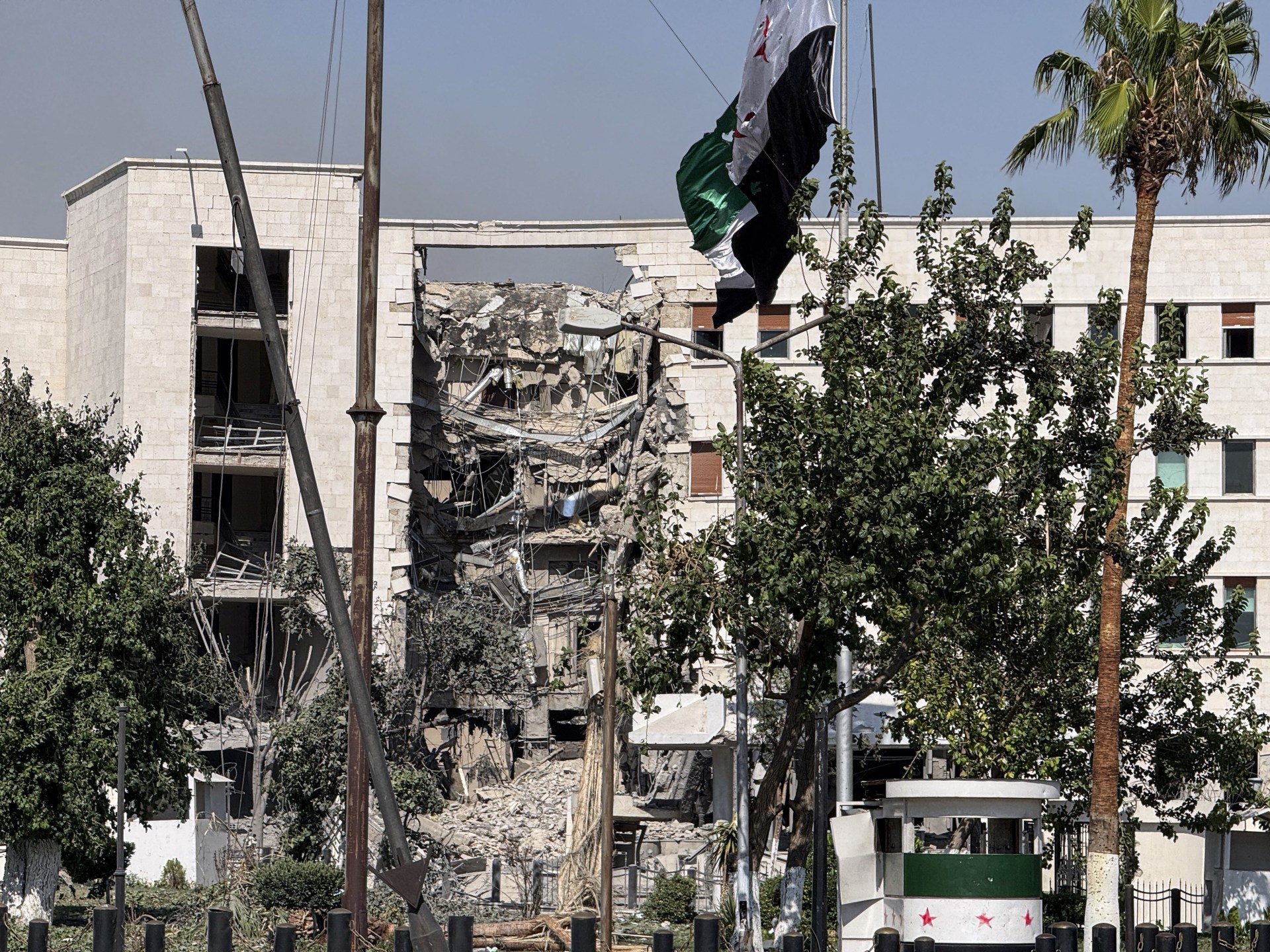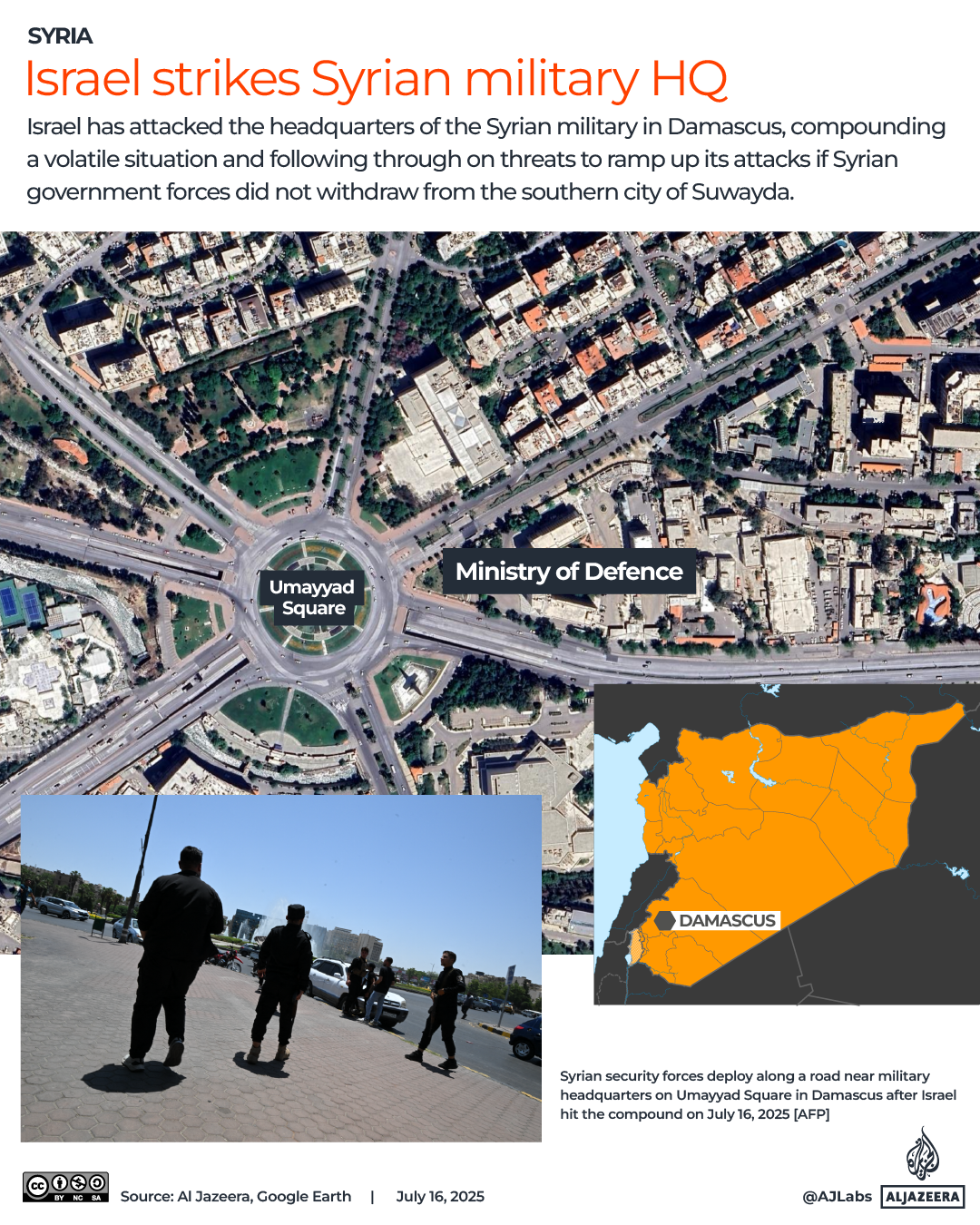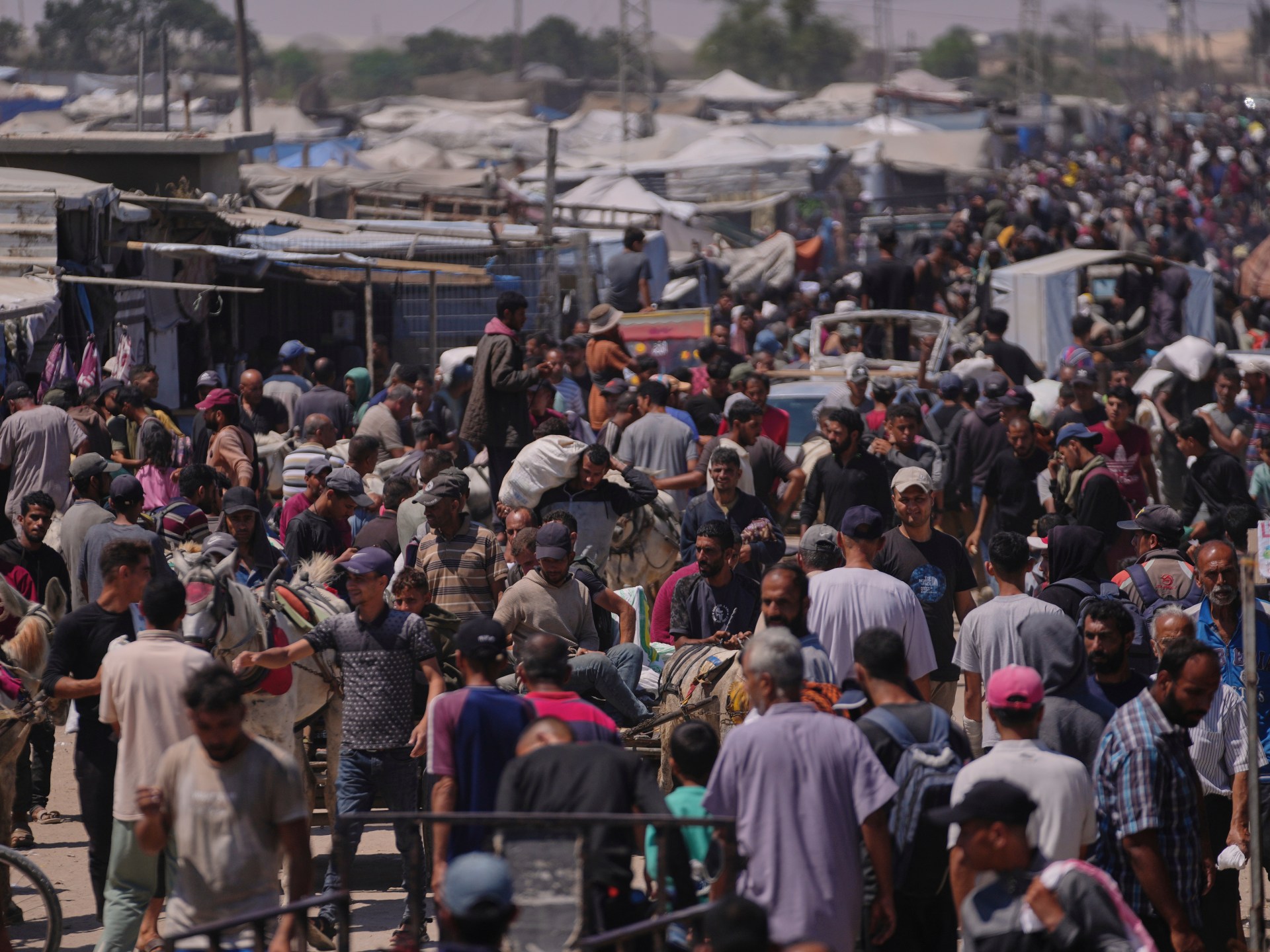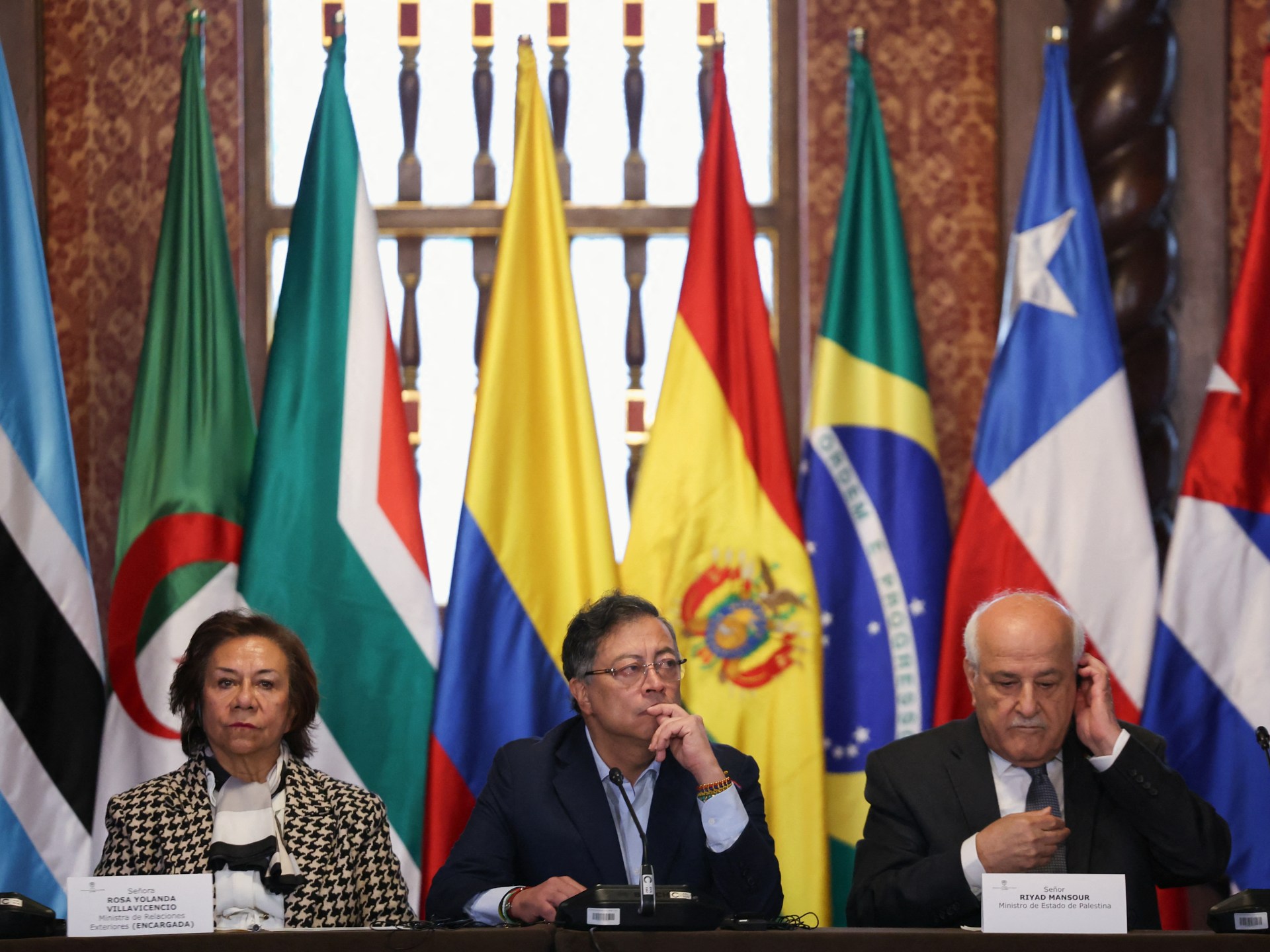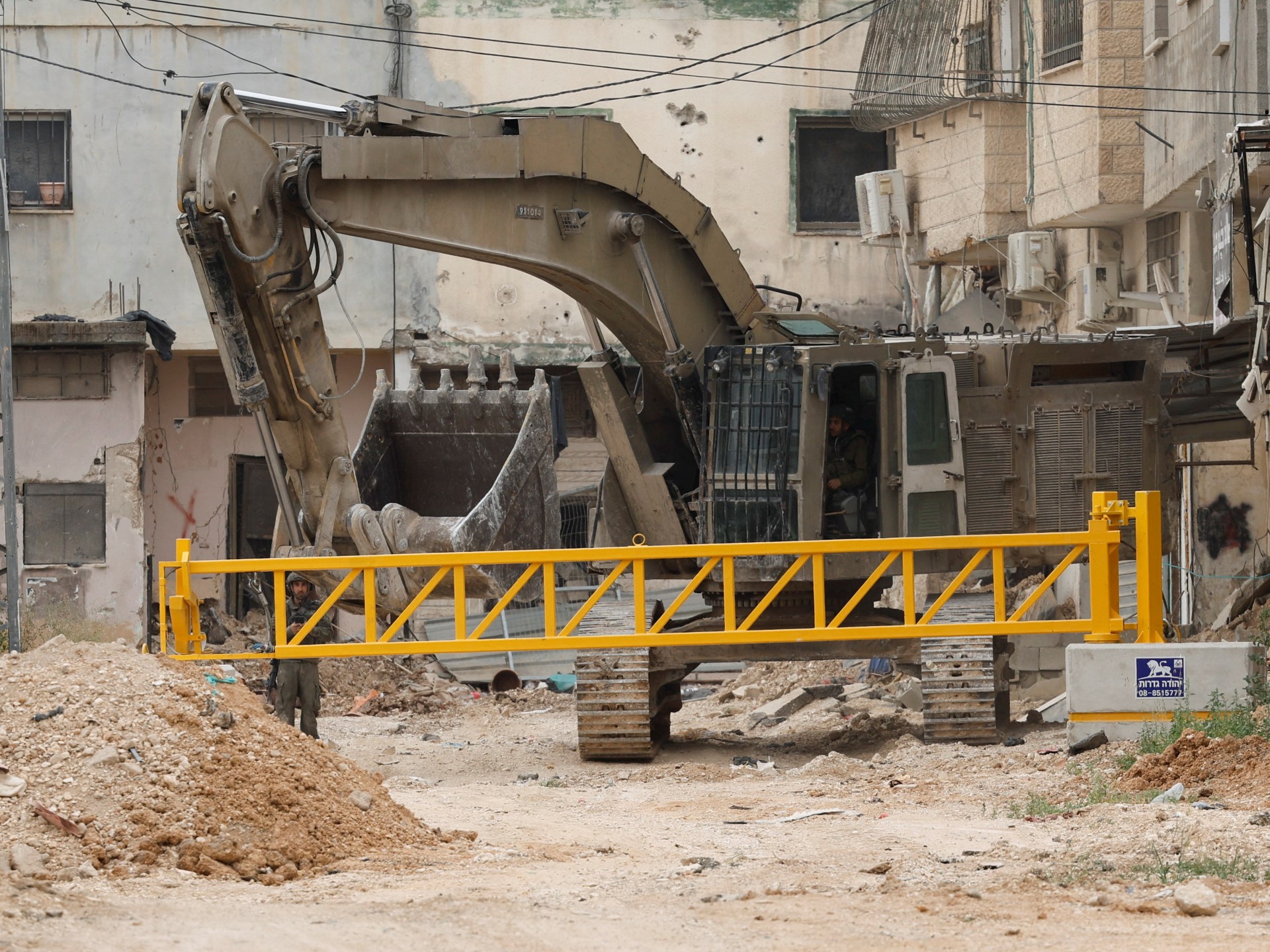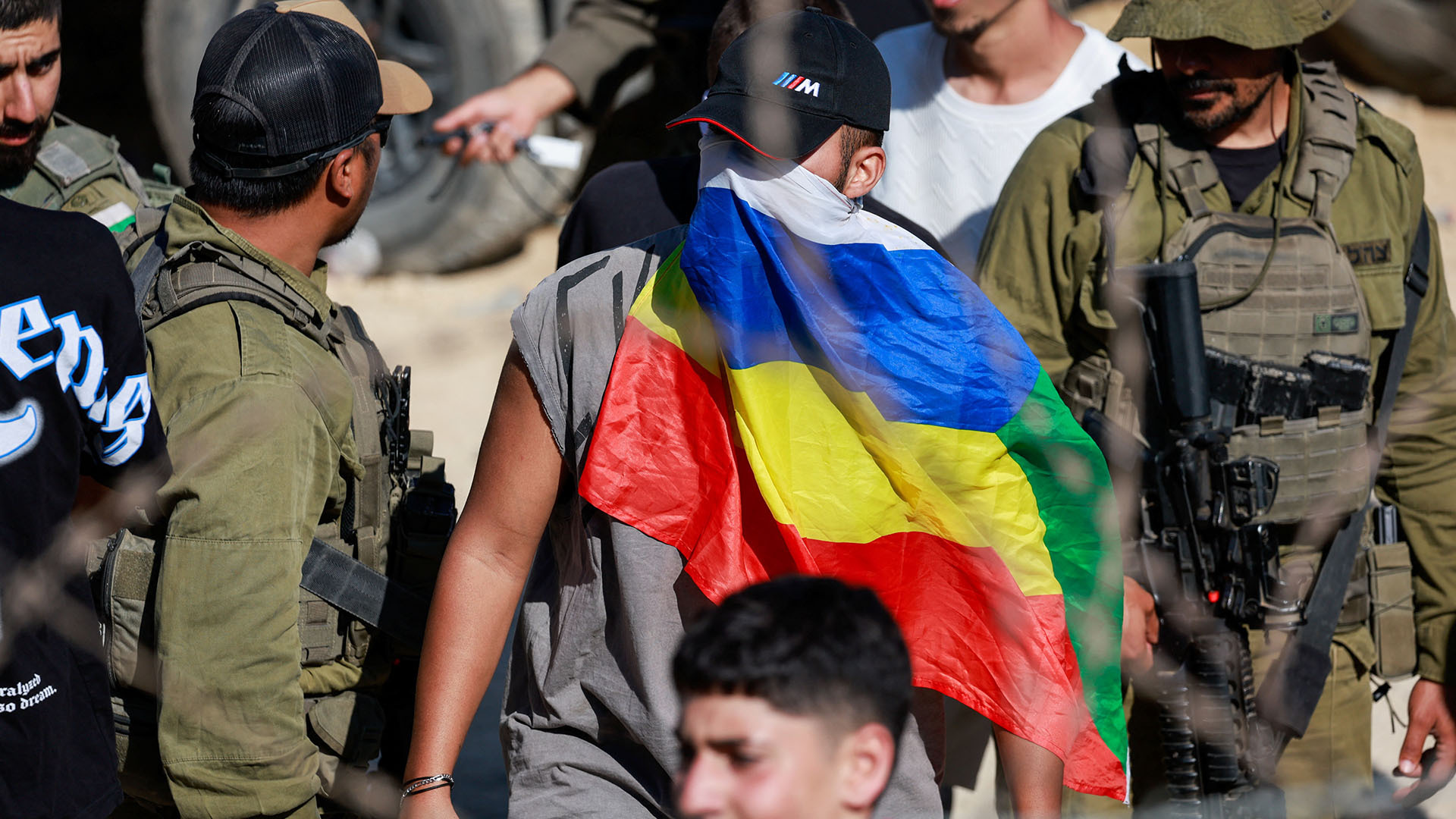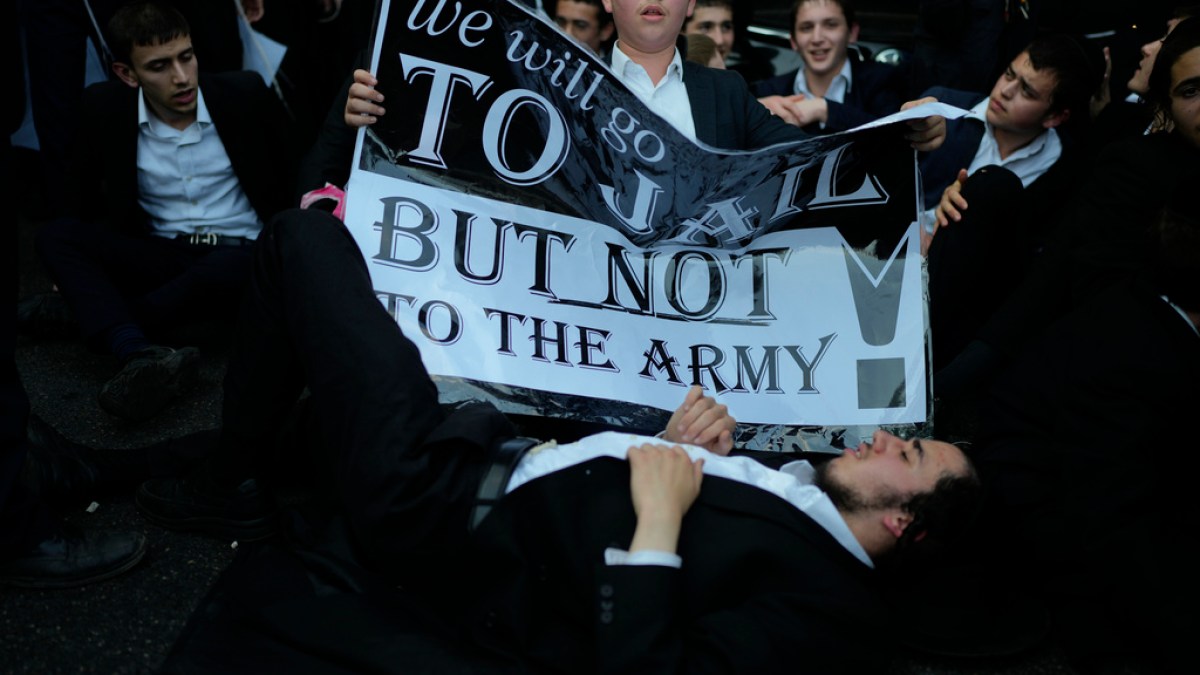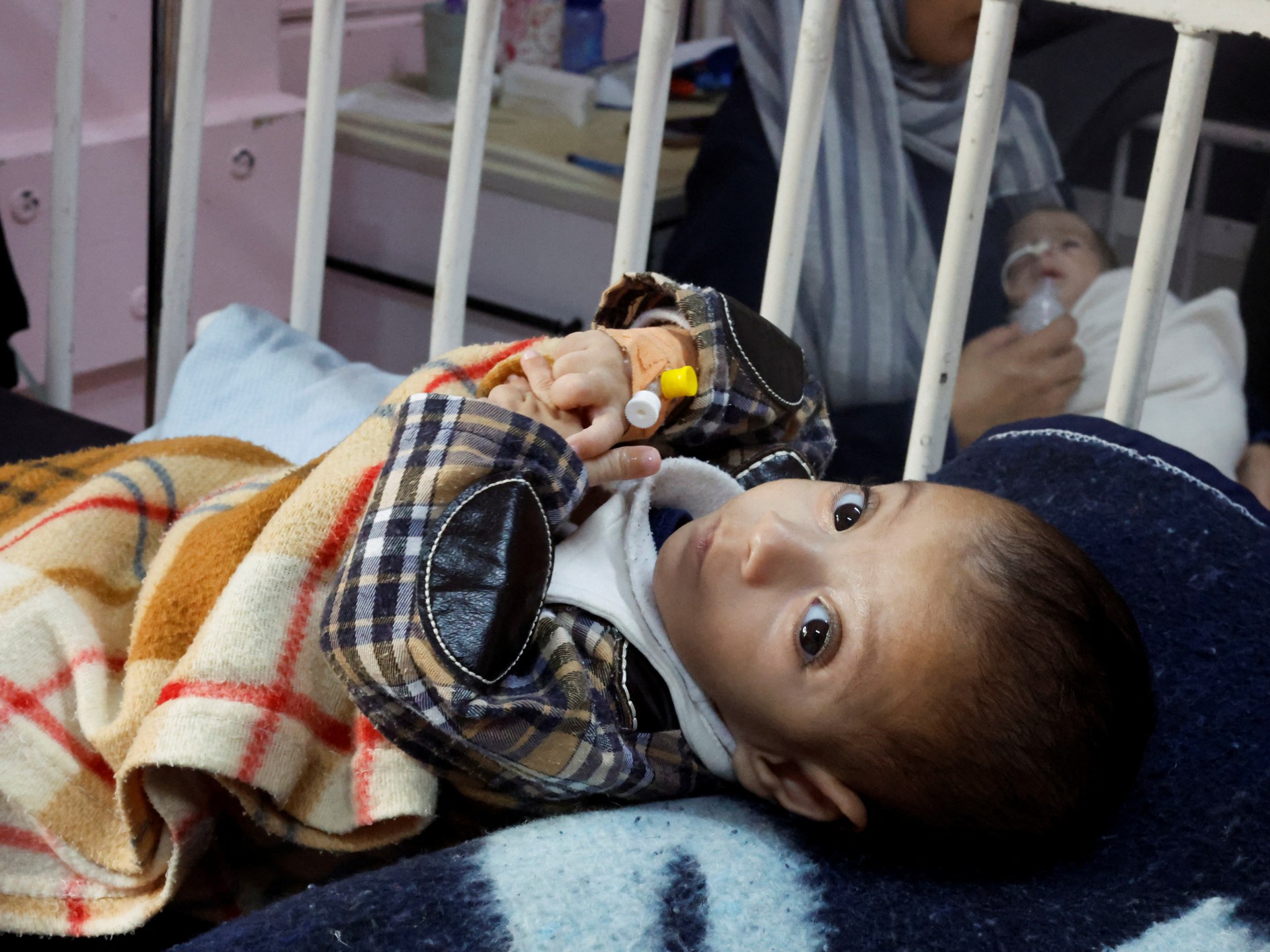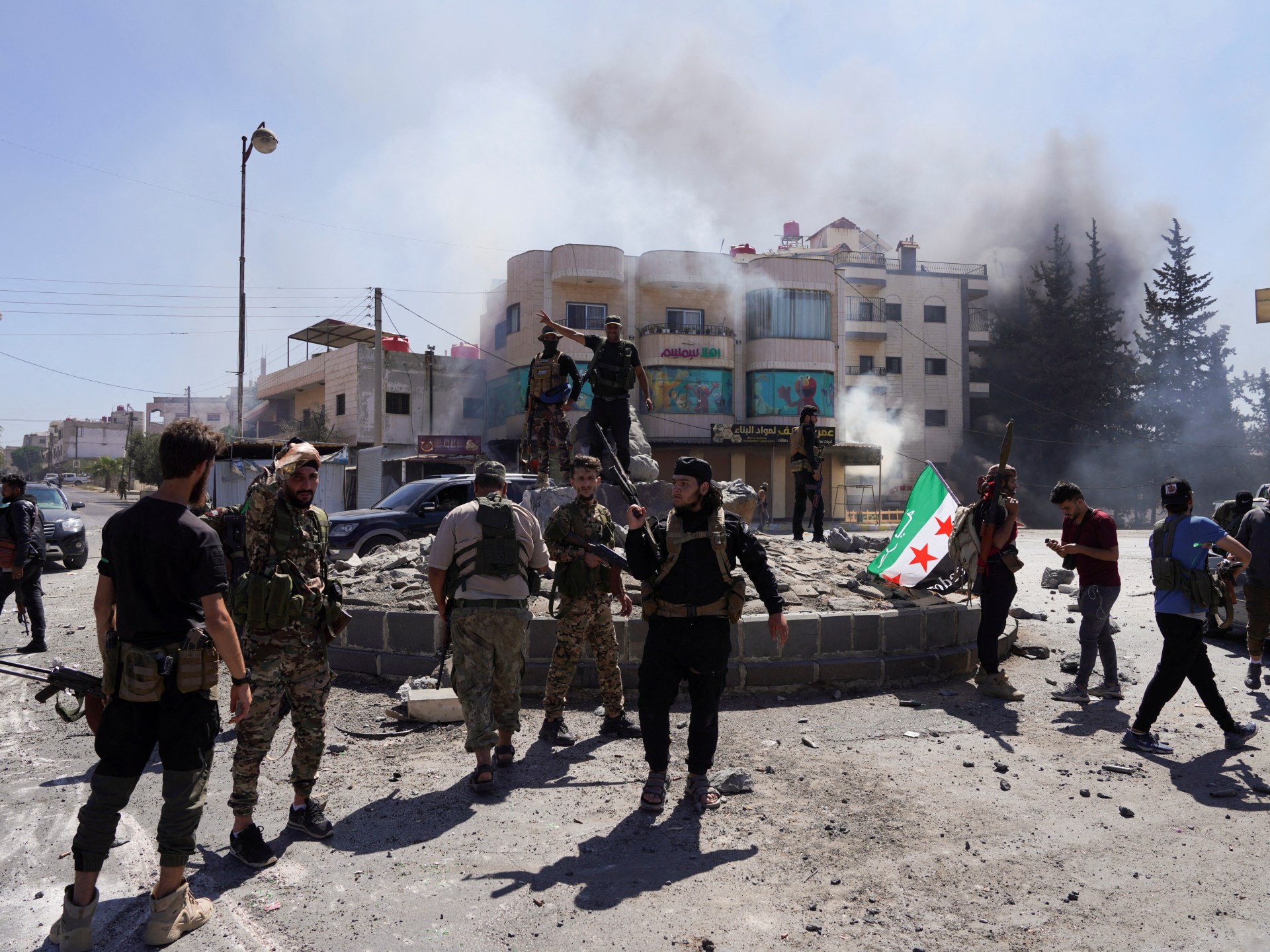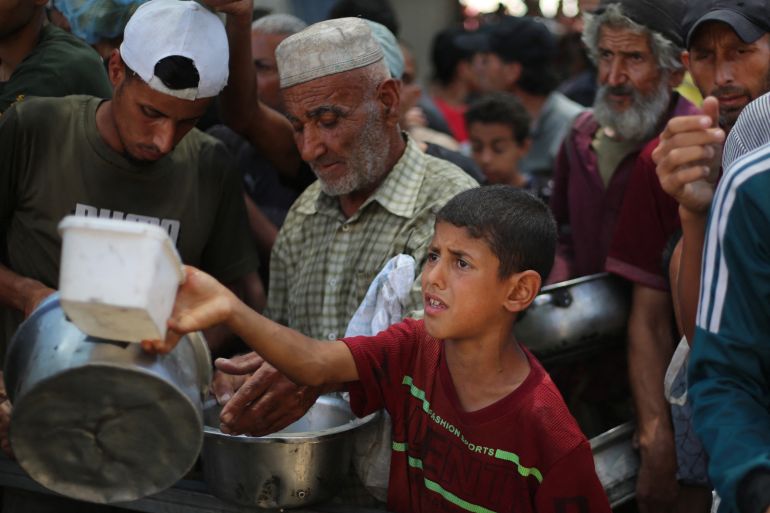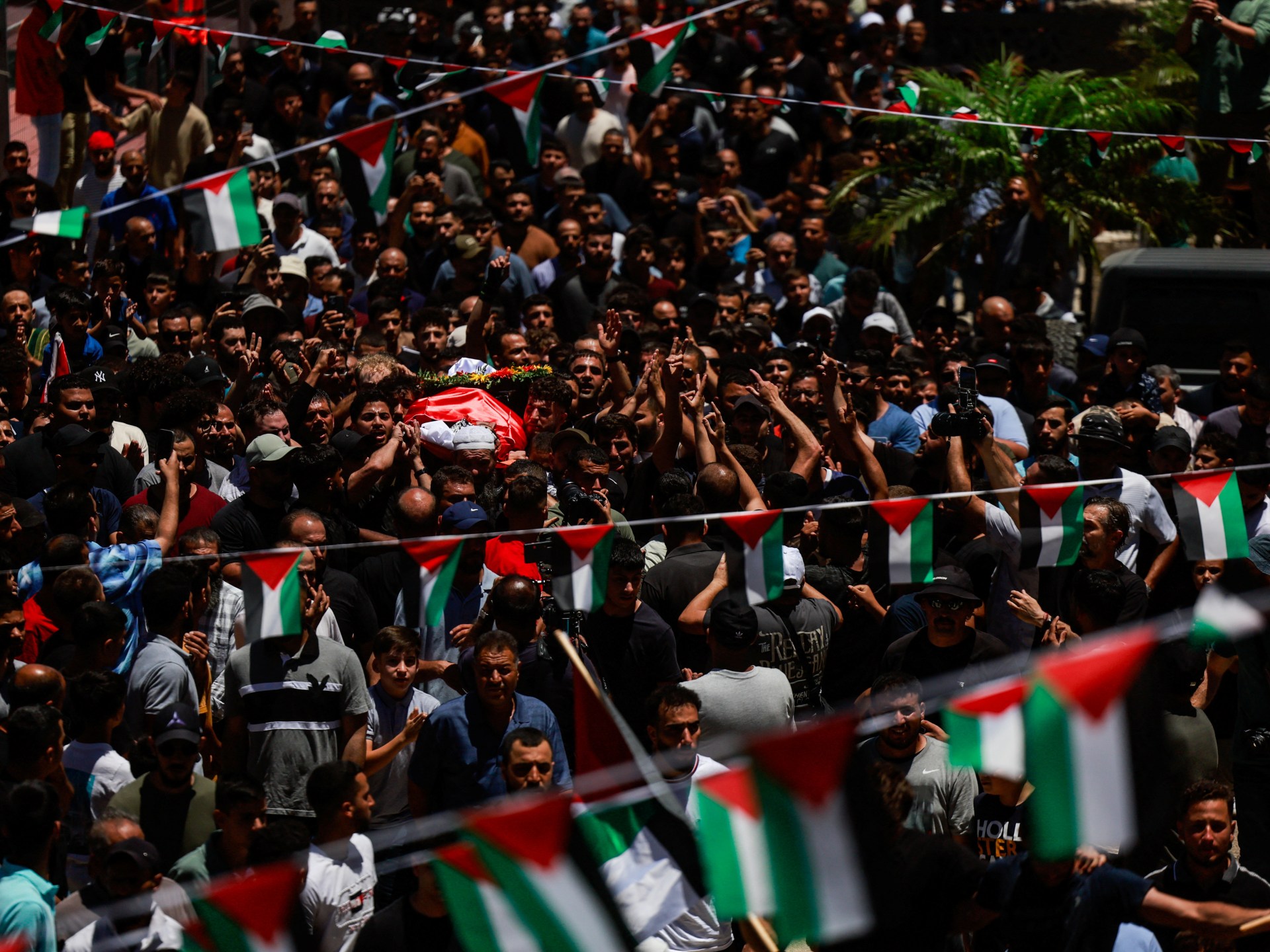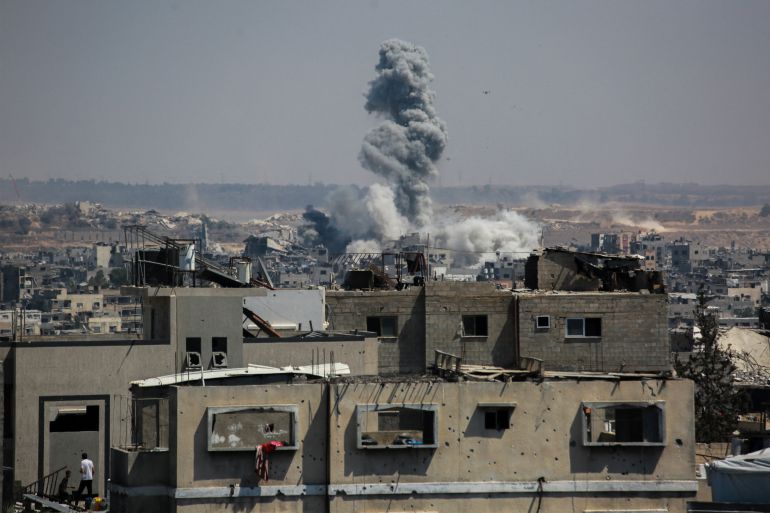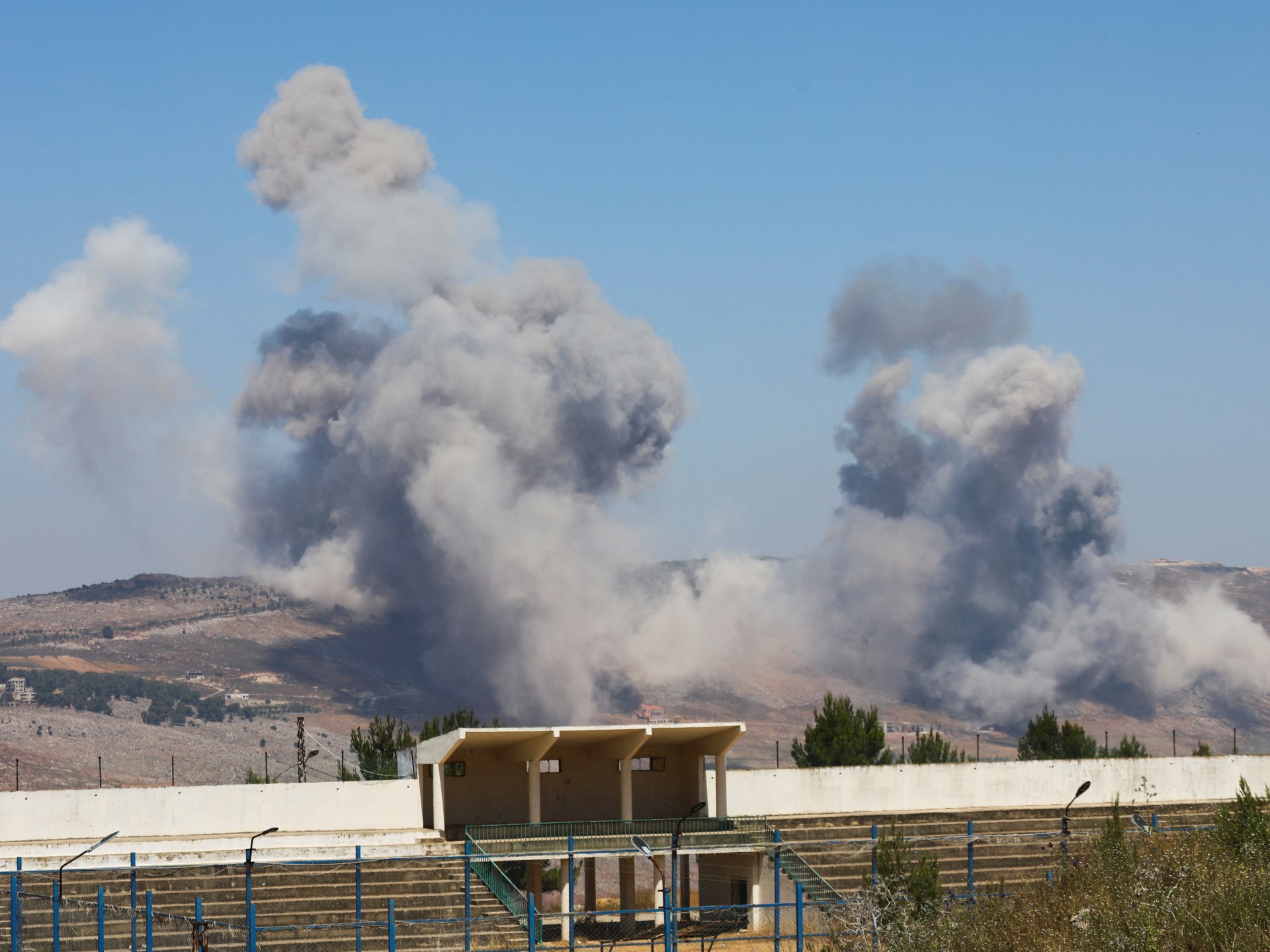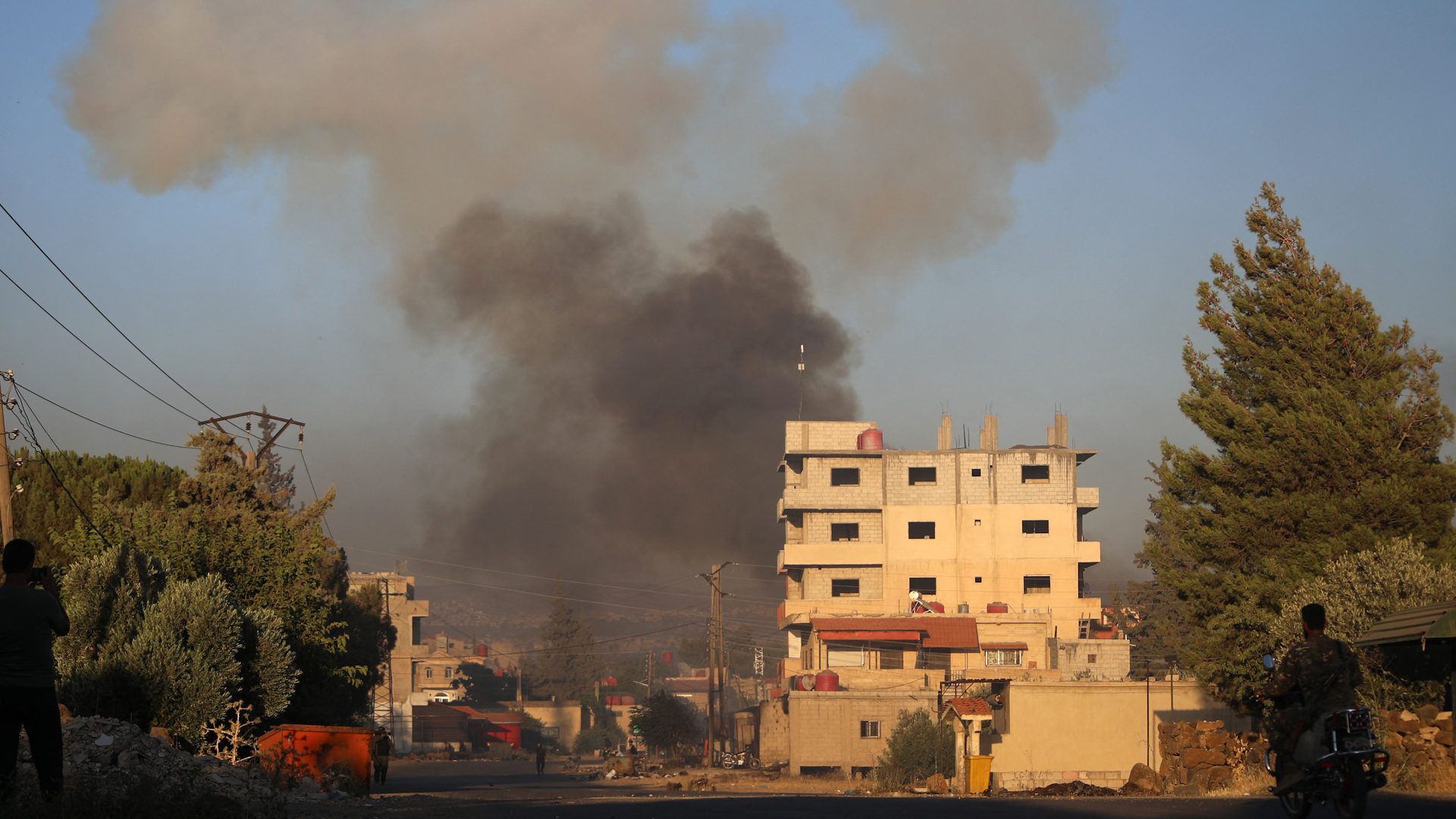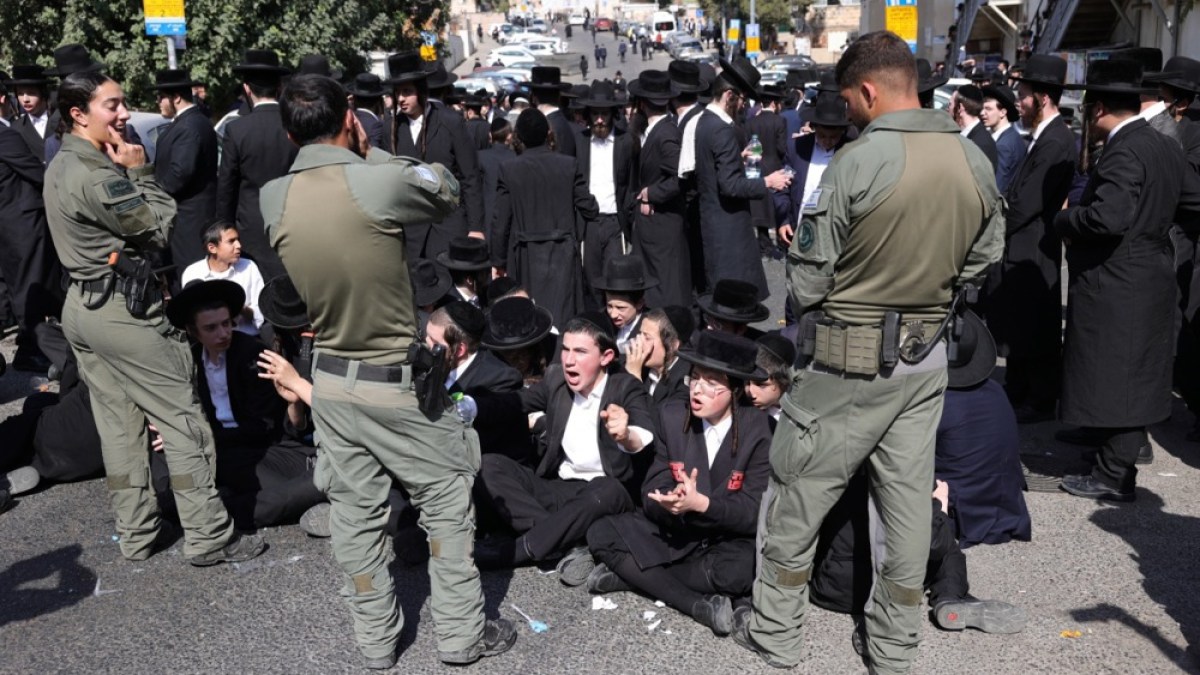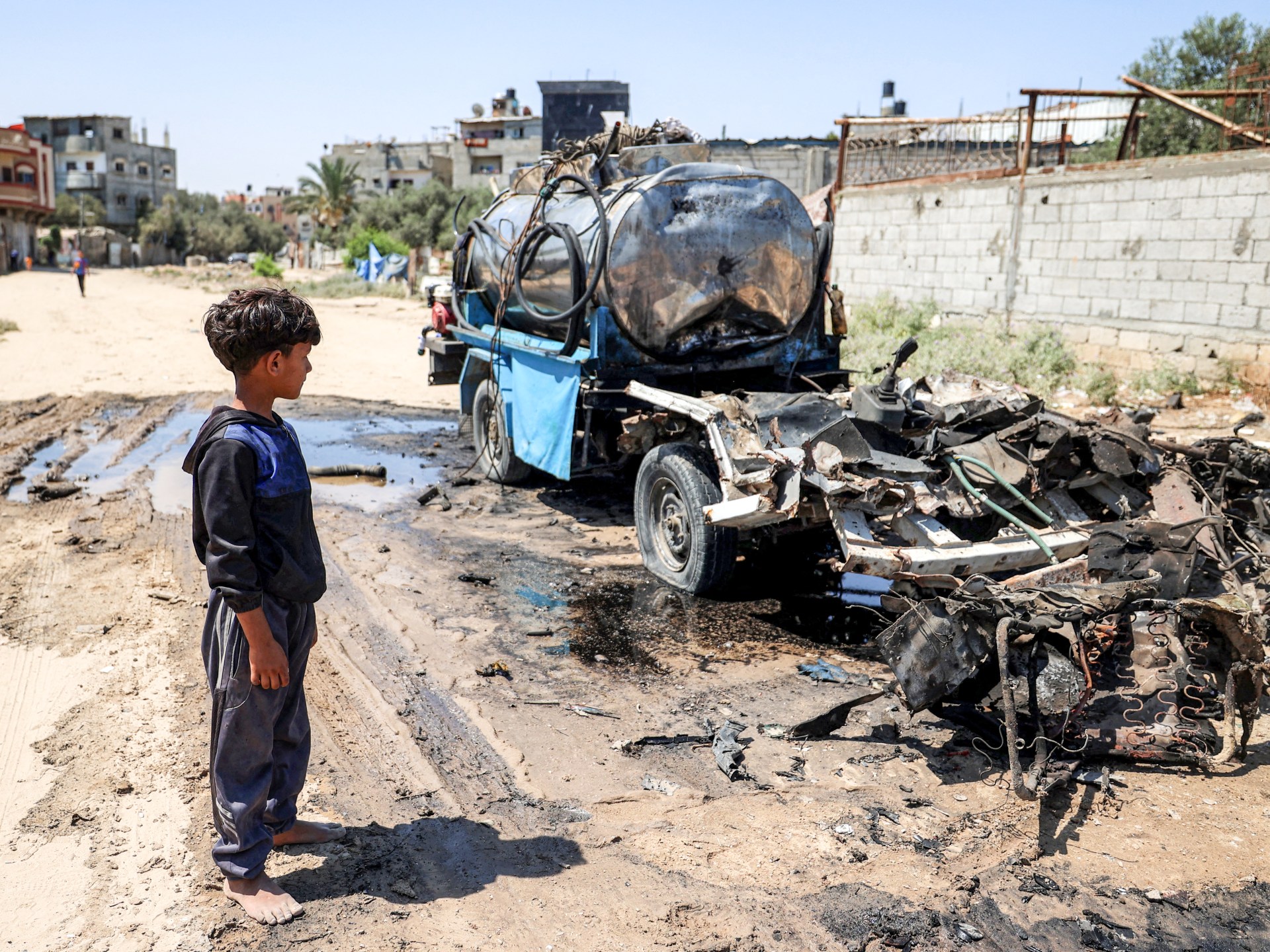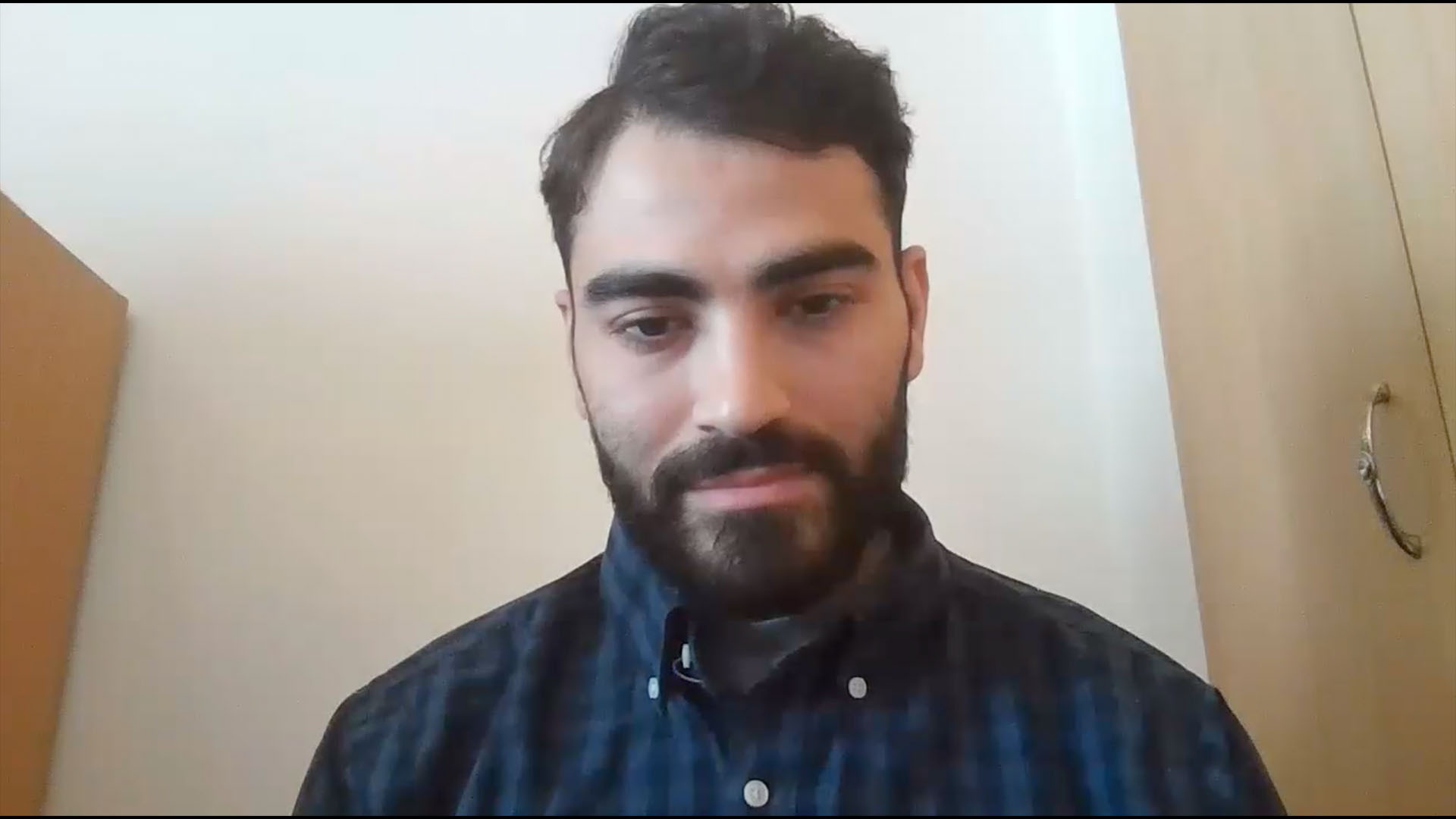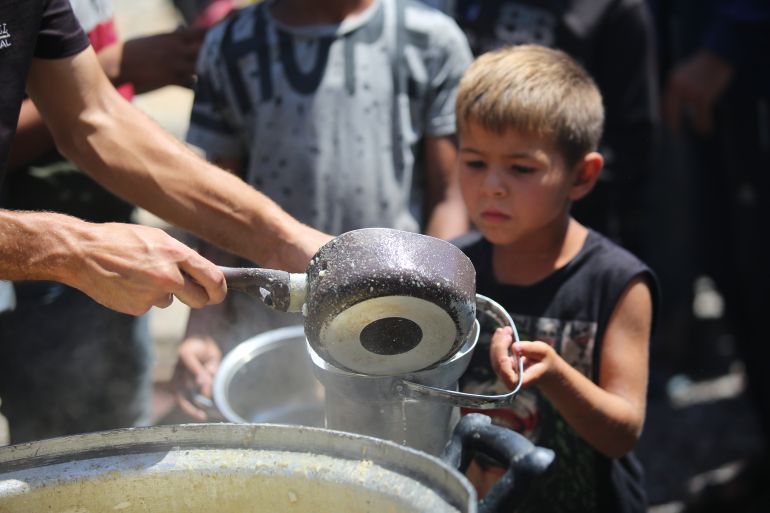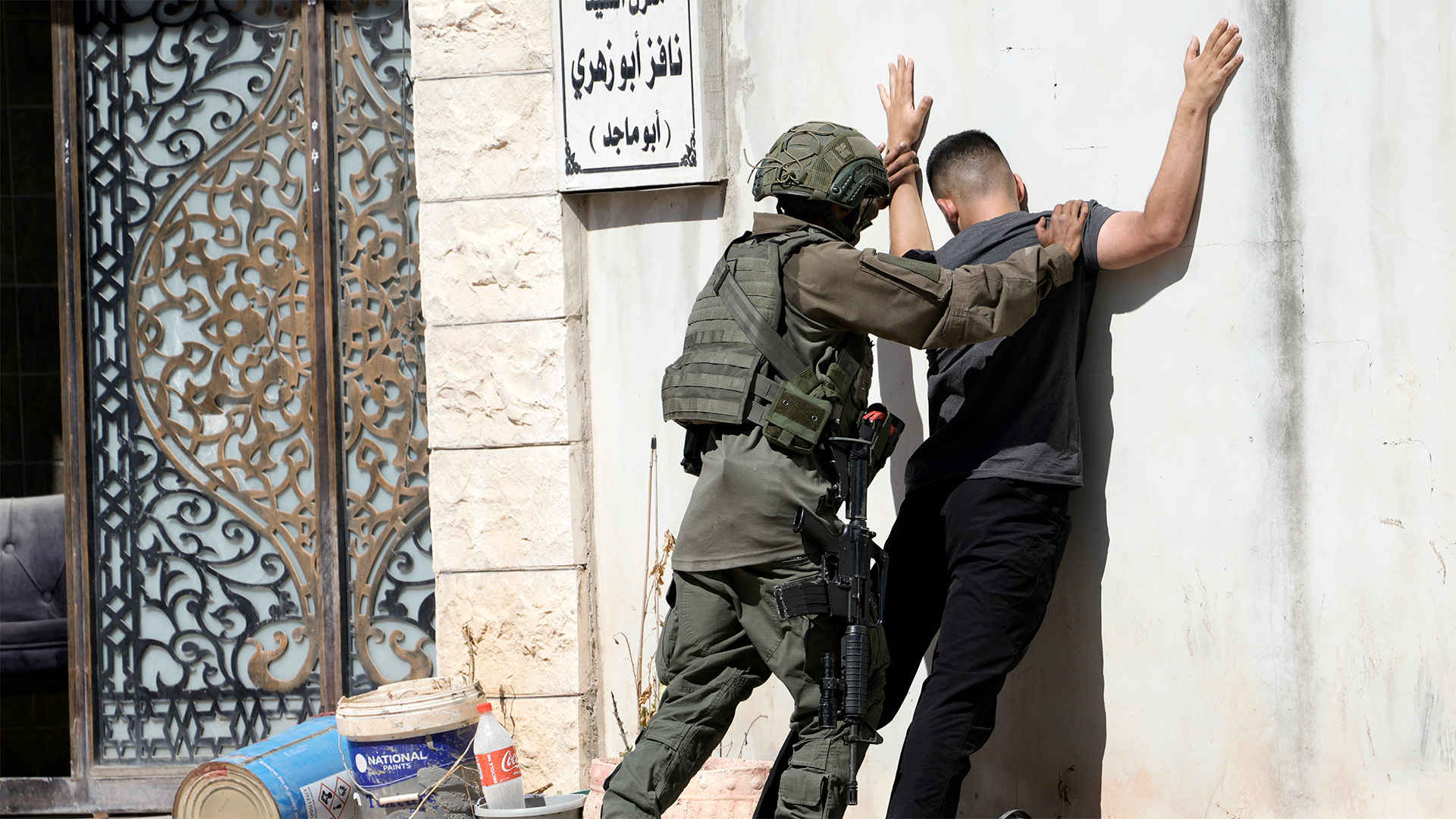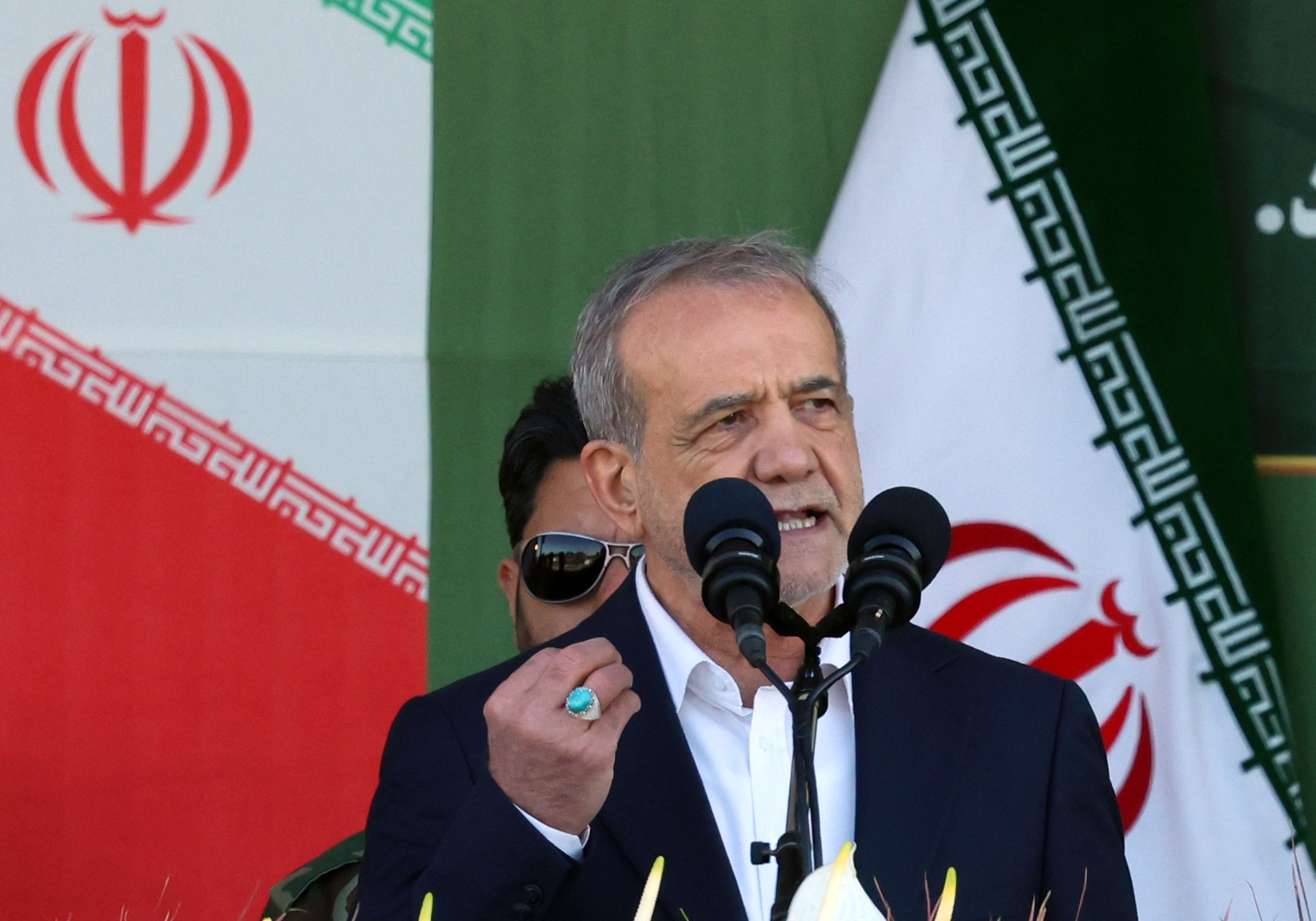Israel bombards Syria’s Damascus as US says steps agreed to end violence | Syria’s War News
Israel has carried out powerful air strikes near Syria’s presidential palace and on the military headquarters in the heart of Damascus, a major escalation in its bombardment of the neighbouring country.
At least three people were killed and 34 others were wounded in the attacks on Damascus on Wednesday, Syrian state media reported, citing the Ministry of Health.
While targeting Damascus, the Israeli military continued to pound areas in southern Syria, including Suwayda, where a new ceasefire deal has been struck after four days of clashes between Druze armed groups, Bedouin tribes and government forces, which left hundreds dead.
Syria’s Ministry of Foreign Affairs said the Israeli attacks on Damascus and Suwayda were “part of a systematic Israeli policy to ignite tension and chaos and undermine security in Syria”, calling on the international community to take “urgent action” against Israeli aggression.
Israel said its bombing campaign is aimed at protecting the Druze minority, and it has called on the Syrian government to withdraw its troops from the city of Suwayda, where much of the violence has taken place.
Defence Minister Israel Katz said on X that the Israeli military would “continue to operate vigorously in Suwayda to destroy the forces that attacked the Druze until they withdraw completely”.
Later on Wednesday, United States Secretary of State Marco Rubio said that the parties to the fighting in southern Syria had agreed on “specific steps that will bring this troubling and horrifying situation to an end tonight”.
“This will require all parties to deliver on the commitments they have made and this is what we fully expect them to do,” Rubio said on X of the ceasefire deal, reached one day after an earlier iteration had collapsed.
More than 300 people had been killed in fighting as of Wednesday morning, including four children, eight women and 165 soldiers and security forces, according to the UK-based war monitor, the Syrian Observatory for Human Rights.
Army withdrawal from Suwayda
The Syrian Ministry of Interior and Druze leader Sheikh Yousef Jarbou confirmed on Wednesday that they had reached a ceasefire. But the new deal was rejected by Sheikh Hikmat al-Hajari, another Druze leader, who promised to continue fighting until Suwayda was “entirely liberated”.
According to the ministry, the deal declares a “total and immediate halt to all military operations”, as well as the formation of a committee comprising government officials and Druze spiritual leaders to supervise its implementation.
That evening, the Syrian Ministry of Defence said it had begun withdrawing the army from Suwayda “in implementation of the terms of the adopted agreement after the end of the sweep of the city for outlaw groups”.
Speaking shortly before Rubio’s announcement of a deal, State Department spokeswoman Tammy Bruce had said that the US wanted Syrian government forces to “withdraw their military in order to enable all sides to de-escalate and find a path forward”.
But while Syrian troops are withdrawing, the government will be maintaining a presence in the city,
Reporting from Syria’s capital Damascus, Al Jazeera’s Zeina Khodr said the deal included the “deployment of government forces”.
“They will set up checkpoints, and this area will be fully integrated into the Syrian state,” she said.
A complete withdrawal by the government would, she said, “mean a failure in efforts by the new authorities to unite a fractured nation and extend its authority across Syria”.
“But staying could open a much bigger conflict with Israel that has promised more strikes if, in the words of Katz, the message wasn’t received.”
Pretext to bomb
The escalation in Syria began with tit-for-tat kidnappings and attacks between Druze armed factions and local Sunni Bedouin tribes in the southern province of Suwayda.
Government forces that intervened to restore order clashed with the Druze, with reports of the former carrying out human rights abuses, according to local monitors and analysts.
The actions committed by members of the security forces – acknowledged as “unlawful criminal acts” by the Syrian presidency – have given Israel a pretext to bombard Syria as it builds military bases in the demilitarised buffer zone with Syria seized by its forces.
Haid Haid, consulting fellow at London-based think tank Chatham House, told Al Jazeera that Israel had been clear since the ouster of Bashar al-Assad last year that they did not want Syrian forces “to be deployed to the deconfliction line in southern Syria”.
“One way Israel is trying to advance that plan is to present itself as the ‘protectors’ of the Druze community,” Haid said.
Ammar Kahf, the Damascus-based executive director of the Omran Center for Strategic Studies, said: “It’s a clear message to the Syrian government that the Israelis are not going to be silent.
“The Israelis are not going to allow the Syrian government to spread its authority all over the territory.”
